Preamble
A great deal has been said and written about our illustrious and Saintly ancestor, Bhai Hira Singh ji (1879-1926). His accomplishments were extensively covered by the media of his times and functions are held all over the world in his memory on 2nd September every year. His biography has gone into several editions and his pictures adorn several museums, including the Golden Temple and Gurudwara Bangla Sahib in New Delhi. A peep into the papers left behind by our revered father, Maj Balwant Singh ji (1911-2004) revealed, that Bhai Hira Singh ji could not have achieved what he did, if it had not been for the work done by his father, Bhai Bhag Singh ji (1844-1947) I was so enamored by his life style that this piece is entirely devoted to his sacred memory. This venerable centenarian was fondly addressed as BAPUJI by every one who knew him and that is how I propose to refer to him.
Bapuji was born in Village Farooka (Sargodha), now in Pakistan. His year of birth has been estimated from the events which he often talked about. He was the only son of Baba Jeewan Singh ji (1820-1893) and his sole sibling was a sister, known as Pyar Bai (1847-1947). The family had lived in Farooka since times immemorial. We know the names of at least three of Bapuji’s ancestors, for sure. They were transporters and traders by profession. The salt mines of Khewra are located near Farooka, and the family owned a large number of camels to carry rock-salt to Meerut. On their return trip they brought jiggery (called gurh in Hindi), cloth and other merchandise. It is said that at the peak of their enterprise, they owned a hundred odd camels. By my estimate, the distance from Farooka to Meerut is at least 550 km. Since the camel can walk no more than fifty km a day, the round trip could not have taken less than a month. As far as Bapuji could tell, his ancestors had been in this business for many generations. The family tree up to Bapuji, is as shown below:
Baba Devi Das
l
Baba Chanan Singh
l
Baba Prem Singh——-Baba Jeewan Singh—–Baba Kaloo Ram
(1820-1893)
l
Bhai Bhag Singh (Bapuji)
(1844-1947)
The Life and Times of Bapu Bhag Singh ji
Bapuji lived long enough to tell his story in his own words. His grandson, Major Balwant Singh ji recorded it in his book, “Amolak Hira”. A more detailed account is contained in his diaries. In the book Pitaji has paid glowing tributes to Mian Allah Yaar Kalyar, who was generally considered to be the uncrowned king of the village. As per these records, Baba Prem Singh and Baba Jeewan Singh ji were in Meerut at the time of ‘The Sepoy Mutiny’ of 1857 (It was known as ‘ghadar’ those days, and the current historians refer to it as the First War of Independence) The brothers were amongst the many traders who suffered heavy losses and they remained away from home for several months. Baba Prem Singh ji shifted to Patiala and Baba Jeewan Singh ji switched over to shop keeping after this event. He set up a provision store in a village called ‘Khichian’ a short distance from Farooka. At that time, Bapuji was 13 or 14 years old, and therefore, the year of his birth is assumed to be 1844. The story takes a turn at this point.
Bapuji learnt Gurmukhi and a bit of arithmetic in a local school. He was expected to assist his father in the shop, but it seems he had other ideas. Just behind their house, there was a “Mazaar” (mausoleum) of a Muslim Saint Mahabshah. And every year, musicians and singers from all over Punjab assembled there to pay their homage to the great soul. One year, a singer known as ‘HASNA’ came whose music was liked by every one. So much, that the people of Farooka requested him to stay on. Balak Bhag Singh who was no more than ten or twelve years old at that time, was drawn to him. He accepted him as his master, and learnt the nuances of Indian classical music. He was quick to learn and was blessed with an ear for music. The master discovered that his voice was sonorous, and he could render the higher musical notes with considerable ease. He learnt Sarangi and Sitar, to begin with.
Armed with the praise and blessings of his ‘ustad’, he made it clear to his father that he was not going to the shop. Baba Jeewan Singh was taken by surprise, but he took it stoically. It did increase the burden on him, since he had only one son, but when he noticed the missionary spirit of the young lad, he decided to encourage him to pursue his passion. It must be remembered that there was very little money in music at that time, and so there was some concern on that score.
Soon thereafter, Baba Jeewan Singh asked his son to render Gurbani at the local Gurudwara. This proved to be a success and Bapuji began to render the morning service. He was instantly accepted by the congregation, and the gatherings became bigger by the day. In fact, he started receiving invitations from places as far as Pothohar, which was over 200 km away. During the process of changing over to Kirtan, Bapuji switched over to an instrument called “Taus” which is specially designed for rendering Gurbani. Before we write a few words about this unusual musical instrument, it is necessary to talk about his marriage.
As per the custom of that period, Bapuji was married to a young lady called ‘Sat Bhirai’ at age of 15 or 16. His wife was the eldest daughter of a namesake of Bapuji, Baba Bhag Singh. Bapuji’s father-in-law was a landlord who had inherited a large tract of land. Around the time when the Sargodha canal was being planned, he purchased 725 acres of land near the alignment of the canal and, later, created a settlement there. The village that emerged there, came to be known as “Kot Bhai Bhag Singh” From this matrimonial alliance it is evident that the family of Baba Jeewan Singh also enjoyed an eminent place of pride in the area. It is believed that the marriage was performed in or around 1860, when Bapuji was about 16 years old.
A General Introduction to Taus
The taus is a bowed string instrument from the north and central India, as well as from the Punjab which is divided into Pakistani Punjab and Indian Punjab. Taus was the work of Sri Guru Hargobind Ji (the sixth Guru of the Sikhs). From this instrument originates the lighter dilruba. It has a peacock body sound box (‘taus’ is a Persian word meaning peacock) and a neck with 20 heavy metal frets. This neck holds on a long wooden rack 28-30 strings strings and the instrument is played with a bow. This instrument projects a sound with a deeper, fuller tone.
The Dilruba originates from the Taus and some argue is the work of the 10th Sikh Guru, Guru Gobind Singh Ji, whilst that of the Taus was the work of Guru Hargobind Ji (the sixth Guru of the Sikhs). The Dilruba was then produced to replace the previously heavy instrument (the Taus). This attempt was intended to ‘scale down’ the Taus into what is now known to be the Dilruba. This made it more convenient for the Sikh army to carry the instrument on horseback. A picture of a Taus is given below:
Let us also look at a picture of a musician playing the Taus
Music Emanating from the Taus
The process of playing the Taus is somewhat similar to the Violin, but the sound is akin to a Peacock singing during the monsoon. For those who may want to hear the music of Taus, I am giving a link to a couple of sites. Just click on to any one of them to experience the melodious sound of this exotic musical instrument.
Or,
The Story of the Birth of an Invaluable Diamond (Amolak Hira)
Bapuji remained issueless for almost two decades of his marriage. In the ‘Sant Gatha’ written by Bhai Vir singh ji. it is mentioned that once a Saint called Bhai Ram Kishan ji visited Farooka. Bapuji performed the morning Kirtan, after which the people of the village told the saint that he was issueless. Bhai Ram Kishan ji predicted that a saintly child would soon arrive in the house. True to his word, Bapuji was blessed with a son in 1879, when he was 35 years old. The name given to the precious child by the Benefactor was HIRA SINGH, who later lived up to his name in letter and spirit.
After that, two more sons were born to Bapuji. They were, named Gurmukh Singh (1882-1957) and Pardhan Singh (1895=1059) It needs to be noted that Bapuji was FIFTY ONE years old when the last child was born.
An Interlude
It is necessary to say something about Bhai Hira Singh ji before proceeding further with the story of Bapuji. Bhai Hira Singh ji was educated up to the primary standard in Farooka, and then sent to a town called Sahiwal for higher education. But he showed signs of being an ascetic, and so Bapuji brought him back home. At an early age of about fourteen, he was married to a girl called “Bhawan Bai” daughter of Baba Duni Chand. But a year or two after the marriage, he left home and joined the entourage of the famous Saint Attar Singh and with him he travelled all the way to Nanded in Maharashtra. It appears that he received his enlightenment there, on the banks of the River Godavari. He had learnt a great deal of the scriptures, and remembered most of the Gurbani, as also its meanings. From Sant Attar Singh ji he imbibed spiritualism. By 1899, when he was about twenty years old, he was already drawing crowds on his own. Bapuji got to know about his whereabouts and with the permission of Sant Attar Singh, brought him back home.
When the people of Farooka saw him, they saw a changed man. In one voice, they said,
“Bhag Singh’s son has become a Sadhu”
His dress had changed, the style of speaking was different and there was a glow on his face. A picture taken in 1903, is given below which tells the tale very well.
Notice the penetrating and awe inspiring look in his eyes and a musical instrument in his left hand. In the village people of all communities thronged to listen to him. Bapuji did what he could, to keep him in Farooka, but that little hamlet was too small to contain his awesome presence. Soon thereafter, he left for Amritsar. And then Bapuji did what very few fathers will do today.
He joined him, as a part of his son’s entourage!
*
The Father-Son Celestial Music Duo
We are now talking about the events in 1899 and beyond. Bapuji was FIFTY FIVE years old, when he left home to join his son. The story of the tours and travels of this famous duo need a full book to narrate. They were extensively covered by the newspapers and magazines of that period. However, one fact is certain. The backbone of classical music was provided by Bapuji. The unusually talented son explained the meanings of the scriptures, embellished with parables. They travelled all over the Punjab, Sindh and Central India. A picture of Bapu Bhag Singh ji taken in around 1917 (age 73) is given below:
I think it is clear as crystal to everyone that this duo went about their job with missionary zeal. Bapuji’s wife passed away on 30 April 1910 (Bapuji was 66 years old) The father and son came home and held a huge congregation to pray for the peace of her soul, but soon got back to their commitment to the ”Gurus” and the ‘sangat’
During this period, they received a request to visit Burma (called Mynmar now) The means of travel were not as good as now, but they went there with the complete entourage. Here are a few pictures taken in Burma:
The Complete entourage to Burma in 1919
Bhai Hira Singh ji 1919
Mastery Over Musicology
In the book entitled “Amolak Hira” there is a mention of a “Kirtan Darbar” at the Akal Takht in the Golden Temple, in which several eminent ‘ragis’ were invited to participate. The special feature of this function was that every ‘Shabad’ had to be rendered in the specific ‘raga’ in which it has been composed in the Sri Guru Granth Sahib. We are told that the father son duo was considered by the discerning judges to be the best. The credit for this must go to Hasna who taught Bapuji at the Mazaar of Mahabshah.
It is also well known that Bapuji did not tolerate any deviation from the specified ‘sur’ ‘taal’ and ‘laya’. If any one in the entourage (including his illustrious son) made even the slightest error, he would give him a dirty look or even tap him on the shoulder with the bow of his Taus.
A Devastating Tragedy
The year was 1925, and Bapuji was 81 years old. The father and son were busy with several projects related with educational institutes and Gurudwara reforms. Their presence was considered essential at every important congregation. The most important event every year was the congregation at Nankana Sahib on the Birth anniversary of Guru Nanak Dev ji. For several years, the father and son had performed the evening service at Gurudwara “Janam Asthan”. That year, Bhai Hira Singh ji was diagnosed of cancer In 1925, He did perform his duty, but that proved to be his last visit to Nankana Sahib. On Second September 1926, his end came. He did battle with the disease, but retained his equanimity right up to the last day. Bapuji was over 82 years old at that time, but he did what he could to nurse his beloved son.
After the demise of Bhai Hira Singh ji, Bapuji was depressed for some time. But he composed himself, with the faith in the Lord, which he had imbibed from his son. And then , upon the directions from the eminent philosopher-poet, Bhai Vir Singh ji, he motivated his youngest son, Bhai Pardhan Singh (1895-1959) to form a duo.
The Final Chapter
In 1928, Bapuji set out on a new journey, at the age of EIGHTY FOUR. And then for the next ten years he kept touring all over Punjab with his youngest son. During the last eight or ten years of his life, he did not go out of town, but kept up with his daily routine. He was full of zest and a source of great strength to his family. I was six years old when I saw him last. My memory is a bit faint, but I distinctly remember him walking briskly. He used to live on the first floor, to remain away from the din of the kitchen and the children downstairs, and had very little difficulty in climbing the steps to his room.
The riots which broke out in 1947 had a very profound affect on his psyche. He would go out shouting at all and sundry, asking them to live as harmoniously as they had lived for centuries. His inevitable end came on 30 April 1947. He was spared the pain of having to see the Punjab partitioned.
The Summing Up
I have been hearing about our ancestors ever since I was born in 1941. Now when I have the time, I have been reading the books and the papers left by our father. Our ancestors lived by a set of values. I, along with my brothers and cousins, would like to pass these on to the posterity. Our revered father began his book on his father with the following quote from Gurbani :
“Pio dade ka khohal dithha khazana : tan mera man bhaya nidana”
This roughly translates to :
“I opened to see the treasure of my father and grand father. I was overwhelmed by what I saw!”
This applies to me, completely. My eyes become moist by how they went about their mission. From the tale of our great grand father, there is a lot to learn. If I were to summarize it in a few words, it would be as follows:
-
Bapuji discovered his inner urge for music early in his life, and then he had no doubt that he did not wish to pursue the family trade; come what may. He was prepared to starve, to pursue his first love.
-
The path he chose was tough. Indian classical music is not easy. The instrument he chose is the most difficult. But he found a person who was well qualified to put him on the right track.
-
In passing, I discovered that there was no communal discord in the Punjab right until a few years before the partition. Whilst there was only a thin line dividing the Sikhs and Hindus, Muslims were an integral part of the social structure. They were good artisans and fine arts was their forte.
-
When Bapuji noticed that his prodigal son had surpassed him in his own field, he had no hesitation to become his ‘second fiddle’ In the current period, I find that ego comes in the way of people having to work under some one who is a course junior to them, or their younger brother.
-
Bapuji had the resilience to accept the inevitable misfortune with equanimity. He had learnt to obey the will of the Master.
-
Age did not seem to weigh heavily on him. In fact he never counted his years. He derived his zest for life out of his service to the society.
-
His one line advice to our father was, “If you want to be happy, make others happy!”
The Tailpiece
Bapuji’s sense of humor is well known. Here are just three oft quoted anecdotes:
-
Once our father said to him, “Bapuji, this year you have turned ninety-nine. If you live just one more year, you will be a centenarian !” Bapuji looked towards him with piercing eyes, and said, “And Balwant, do you mean that after that I should die???!!!
-
One day, Bapuji overheard the ladies talking in the courtyard below. One of them said, “In Farooka, when a very old man passes away, people distribute sweet rice in the whole village. Our Bapuji is the oldest man in this complete area. I think we should distribute sweet rice in all the seven villages around Farooka” Bapuji overheard this. He came down with his long stick and yelled, “If you want to distribute something sweet, do so just now…so that I also get my share!”
-
We little children used to gather around Bapuji to have our hair combed after the hair bath. He used to do it with a lot of patience, without causing any pain. Each of the three cousins would vie for the first turn, Bapu ji would lovingly say, “Tu pehle, tu agey, tu mohre…” All these are synonyms for ‘first’ in Punjabi

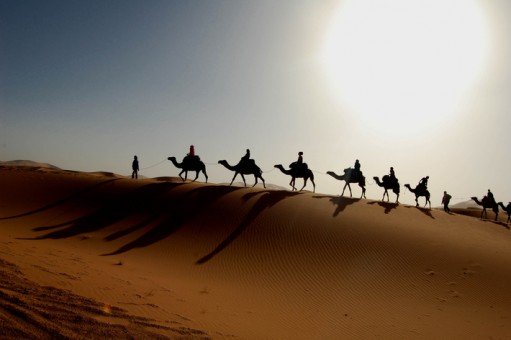
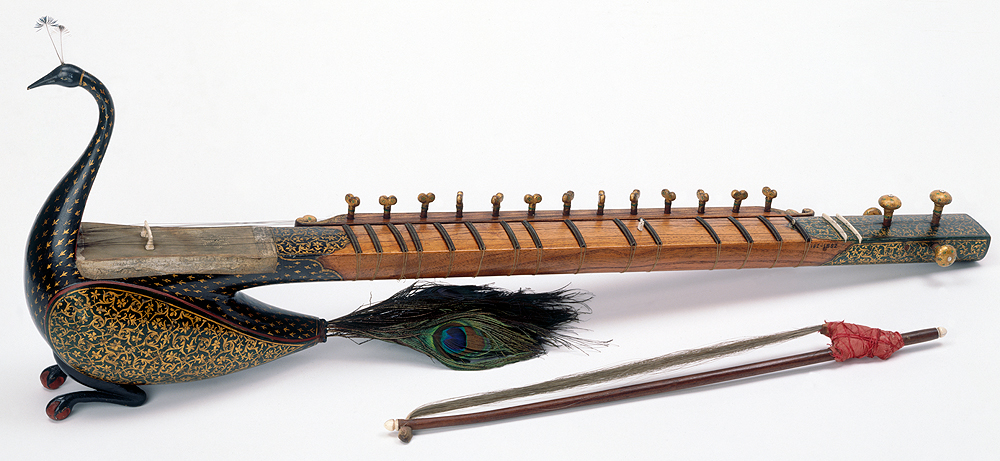
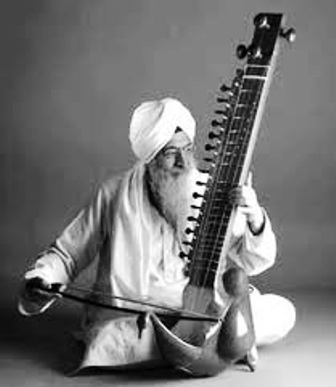

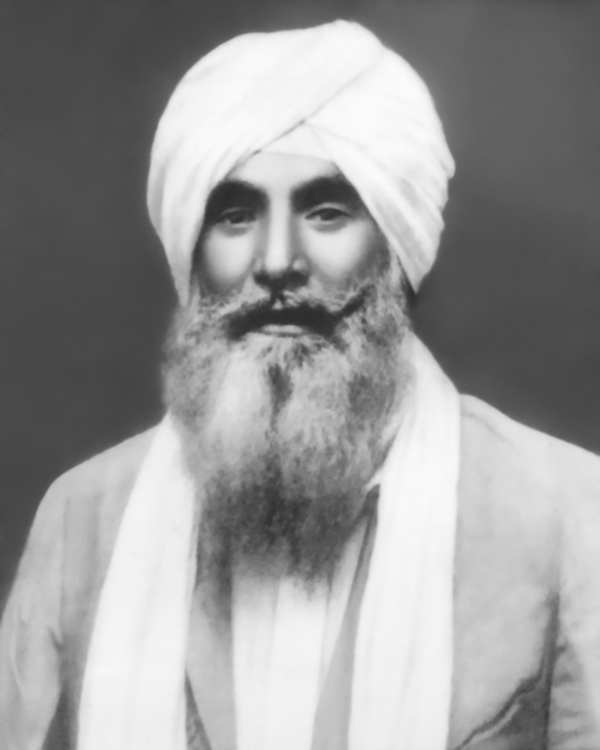
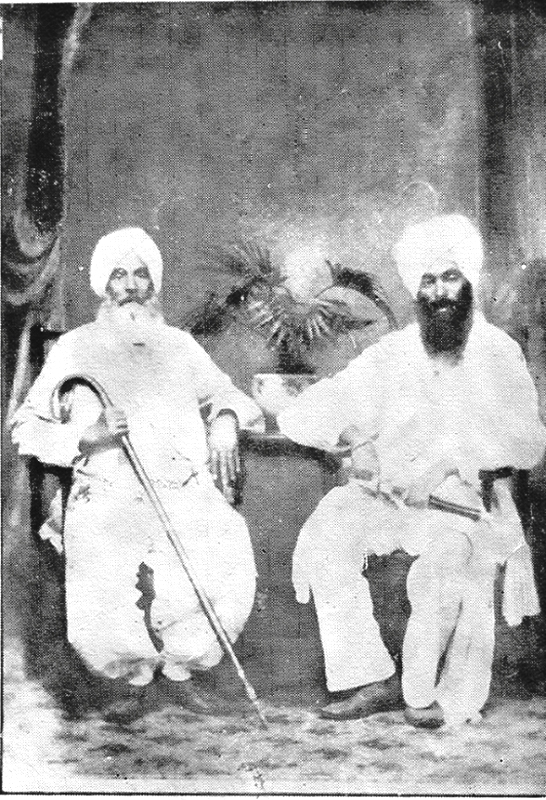
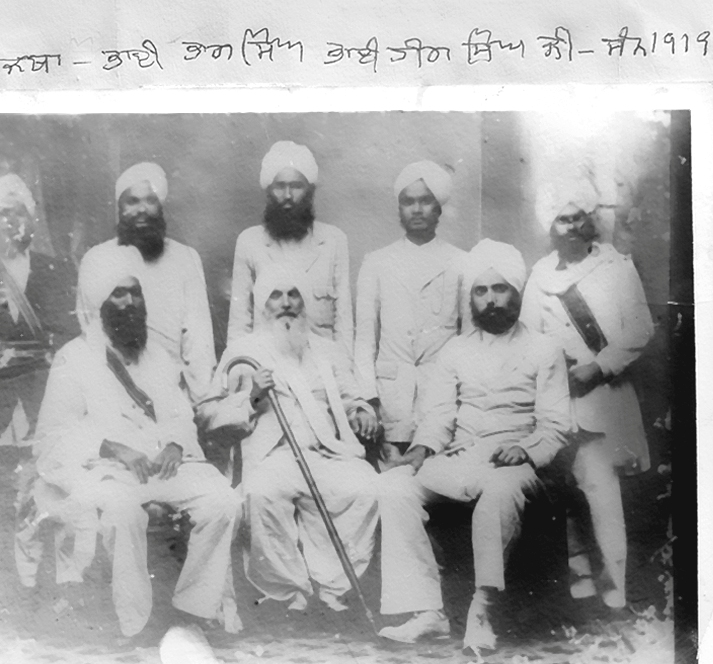
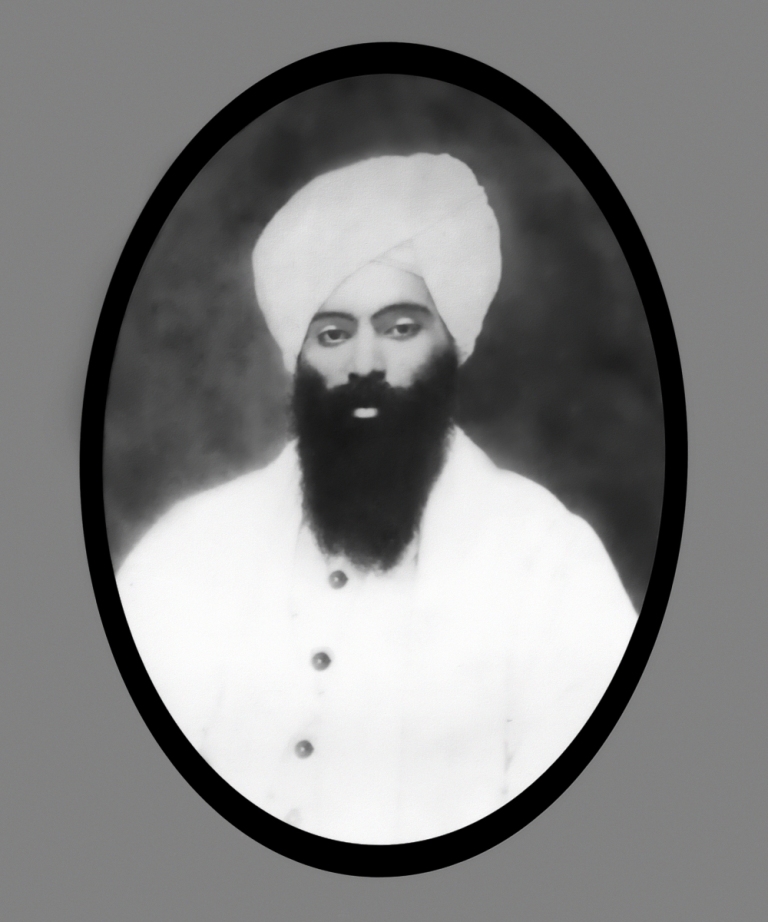





Sir, It is the real service done by Bhai Bapu ji, Bhai Hiraji by spreading the Divine message by way of music/Ragas.They were the blessed ones. Iam sure their renderings and their virtual presence does exist even today that made you recall, and pay due homage to their pious art works. Energy can neither be created nor destroyed.Their +ve vibes do exist today.
Waheguru
[...] http://amolak.in/web/a-glimpse-of-our-roots/ [...]
My Dear Surjit,
After reading this post & many of ur earlier ones, particularly the piece on ur ancestral roots & several other writings,I am now beginning to feel that u have been pursuing a wrong profession. U should have taken to writing seriously as Khushwant Singh. It’s not too late even now. Such keen intellect, searching mind coupled with unique sense of presentation backed with marked flair for writing, as u r blessed, must not remain dormant / untapped in the interest of or society at large.
To start with, how about working on uplifting of our moral values. No amt of laws, legislation, policing etc seem to help. Corruption, frauds, scams, exploitation, extortion, child abuse, gender crimes, so on r rising.
Greed, together with falling sense of human values has been our biggest failings since ages. What can be done in the present day context. More importance on spiritualism or religion?
But in the name of religion too much exploitation & harm seem to have befallen societies world over.
For ur thoughtful consideration. With fond regs & best wishes to u both,
Manmohan
Col Vinod Kumar, Director of the St Kabir chain of education institutes in Ahmedabad chose to communicate his comments on telephone. In our very detailed ‘guftagu’ he mentioned that he read the piece with great interest. He himself was born in Sargodha, and had heard stories of that great place from his grandfather. My description correlated with his memory a great deal. In particular, he observed that life during those days must have been very demanding. Imagine life in those camel caravans, moving day after day, and guarding the goods as also the money, with no means of communication. His observations were very accurate. “Thuggee” was common, and people were often looted on the way. And then there were other problems. Water was scarce in the desert and the travelers’ inns were primitive. His comments have motivated me to do a full piece, based on the diaries of my father. I myself was six years old when we move out of the village, where we had no electricity, and no running water. There were no toilets and we did not have any of the gadgets which even the poor people possess now! Thanks, Vinod for taking me down memory lane!
Simply excellent
and
you give life to the views
expressed by all
as you answer each one
Great , just great
Do keep it up …..
I have purposely delayed my comments
as you are praiseworthy
Sir
U///sgmt
Dear Sergeant Major,
I must point out that “BEAUTY LIES IN THE EYES OF THE BEHOLDER!” Mine is a humble attempt to give vent to my thoughts and feelings. In the evening of my life, I wish to get it all off my chest. Shakespeare called it ‘catharsis’ I seem to feel lighter every time a piece is uploaded on this blog. You are kind with your words! Thanks ever so much for your encouragement.
Surjit
tussi great hoe ji…… Surjit jee
colls….
Dear virji,
you have really done a tremendously great job. We have heard a lot about respected Bhaya ji & Bapu ji but the details which you have researched& penned down are really praiseworthy & some of course new to us. My eyes were wet while reading the struggle of our great grand father. I feel very lucky to be a sibbling of such noble ancestors.Waheguru aapji nu chardikala bakhshe ji.
Satinder ji and Mohinder ji,
Thanks for your kind words. I notice that you have a good command over the language. I remember when we met in Jallandhar (I think) you were pursuing your MA in either English or History.
Whatever we have is due to the work done by our ancestors. Now it is for us to carry the baton forward. I am sanguine that Sangat, Nimarta will do their bit. I look forward to their mails. Because that gives me the impetus to sit on the computer!
Surjit
dear sir,
Read your latest memoirs with lot of interest. my respect for ur late father has gone up many notches as he had the passion to record family history to be passed on to future generations. no doubt you belong to an illustrious family and we had the good fortune to interact with you and other family members during ur visit to the Andamans.
Please keep sharing the family history and your wisdom, for us to learn and imbibe traits of humility, service to others and spirituality. with loving regards,
Harman
Dear Harman Preet,
Yes. I think our revered father did a great job, recording an account of his life during the last three years of his life.
Our parents are the best teachers, because we are more like them than anyone else. A set of good values and positive thoughts are a more precious treasure to bequeath than a lot of land, a large house and material wealth. Money can be earned in a variety of ways, but values have to be cultivated!
We look forward to your visit to Chandigarh.
With best wishes for Ms. HP and love for the children,
Surjit & Surinder
Real good one, you do have the knack of keeping things intact. Very well done indeed.
Sarabjit
This reads very well , Dad.
Even though we have heard some of these stories, but putting this together in this manner brings out something new each time, and makes one reflect :
The rate of change that your generation has seen – from a village to partition to wars and then a backward country that was always 15 – 20 years behind the west , to today where India is practically making some history – has been daunting !
These tales give us a perspective of how our ancestors too dealt with change and adapted, whether it was trading or following their heart like Bapuji to learn pakka raag’s .
Bhaia ji took a spiritual path and was clearly an outlier. Therefore fundamentally changed our families outlook, and has left the deepest impact.
Look forward to seeing the other 7 chapters to get a rounded view of the blessed soul.
Warm Regards,
Jasdev
Jasdev,
Thanks.
Yes. Bapuji’s life inspires me. His greatest characteristic was his zest for life, and the ability to accept the Will of the Lord. He was able to take the good and the bad news with equanimity. And he was active. He took up the challenge of forming a second ‘Jatha’ with his youngest son at the age of EIGHTY FOUR. In one sense of the term he never really retired, even when he had crossed the century mark!
It shall be my endeavor to complete the eight episodes of the family history as soon as possible. The encouragement provided by you will impel me to do so.
Papa
Sir,
I Think a very well researched & very well written piece which would make Khushwant Singh envious at his ripe age. I personally feel we have found the author who can fill his shoes.May God give you long,healthy life so that we can share such valuable knowledge more often.
By the way, I have my parents speak with great reverence about Sant Attar Singh Ji,who was the patron saint of Pothowar.
Jatinder Pal Singh Suri
JPS,
The research is the work of our revered father. I have only translated it!
Yes. Sant Attar Singh ji was a noble soul He was blessed by the Almighty.
Surjit
Sir, Beautiful.
Loved it and I must say you have some great people in the family including you.
Regards
PSGill
Paramjit,
Thanks.
I think the last two words of your message are not true!
Surjit
Thanks for sharing
Sir,
The world has changed…but in essence, life is what it always was. The change brought about by technology is only on the surface. Deep within, we are what we always were.
In fact, the more the world outside changes, the more it remains the same!
Gul
Gul,
Thanks.
I have very few regrets in life. The only thing which I would like to ‘undo’ is the partition of the Punjab. We had lived in harmony for so many centuries. It could have gone on…
Surjit
Dear Gen Surjit Sir,
1 Very inspiring and interesting write up.May the choicest blessings of Waheguru be showered on all members of the family.
2 In a Rally held at Patauda distt Jhjjar on 01 Sep 2013, I raised the issue of Age Expectancy very strongly.The Rally was attended by over 5000ESM including former Chief Gen VK Singh.Copy of the letter written by me to RM has been sent to all MPs.
3 May I request you to send more details of the Study in case you can locate.
Regards.
Satbir.
Fascinating family lineage. And, so lovingly and diligently researched and recorded- my warm compliments,Surjit.
Giants, those venerable veterans- in comparison the succeeding generations have mostly been chasing mirages and/or mammon- not referring to your oak-tree!!!
Yogi
Thanks a ton General sahib. It is a wonderful compilation of our ancestors contribution,
who had reached such a great height in spirituality, and caring for humanity. Very happy to read &
learn about them. Your note is worth reading many times.
I am fortunate to have been also born in Farooka also, where such great souls lived and cared for us all.
My mother had full faith and devotion in Guru Granth sahib, and used to recite something daily at home,
I remember at our Delhi house, ( after partition) listening to of her words of wisdom from the Granth sahib( mostly)& other places.
My father had big agri. lands at Farooka and family had Cotton mills at Silanwali, as you might know better.
Many many of our ancestoral generations had lived there. You note brings a lot of value and connections.
I am also fortunate to have studied together with your brother Surinder Singh at IIT Delhi.
I will try for an opportunity to meet you.
Satish Manocha, (M) 9448061434
Satish,
Thanks.
Your mails always remind me of Shiv Lal uncle!
I am really looking forward to my next visit to Bengluru. I hope I get some quality time with you.
Surinder remembers you very fondly.
Surjit
BE YOURSELF!
AN ORIGINAL IS
FOREVER BETTER THAN A COPY!
Bindiya
Surjit,
While reading through your mail ,I noticed small abberation-you seem to have inadvertently indicated your father’s life span as 1911-2014,this obviously is not correct.
AK
Ashu,
The error has been corrected. The correct date is 2004.
Thanks for pointing out.
Surjit
Dear Surjit,
It is good to know that you have Not forgotten your roots. Regards.
Maj Gen Samay Ram
Samay,
Thanks.
I have recorded it for posterity!
Surjit
My dear Surjit
Dear Surjit
A very valuable treasure of family history you have.It also gives out the family trait of Humility, Sprituality,and acquisition of wider knowledge. We as cadets still remember how your father who treated us with respect.
Congratulation for such a rich inheritance.
Gurdayal
Gurdayal
Interesting reading
Narinder
Narinder,
You and your family are a part of the story!
Surjit
SS,
A minor point,please check and amend your late fathers year of demise.
PS
PSD,
You have the eyes of a Hawk!
I have made the correction.
Surjit
Dear Sir,
Thanks for sharing. May they have peace where they are, still looking after the family.
KKK
Dear Surjit,
Very interesting rendering of your glorious heritage and ancestors.
Has involved a great deal of research.
Thank you for sharing with me.
Regards,
Prakash Gokarn
Prakash,
You owe it to your comrades to share your very rich experience of globe trotting!
Please do not delay it.
Surjit
Dear Sir,
It is very good to have such ancestry and more than that it is an excellent depiction for posterity.I am sure that your family line will immensely value your tireless effort in recording it aptly.Ultimately it is the value system which is eternal.Great indeed sir!.
Ganga,
Thanks.
What you have done, and what you are doing now is worthy of emulation by soldiers. It shall remain my endeavor to project it to all my friends and comrades.
Surjit
….it left me with tears in my eyes!reminds me of a line in “Anand Sahib” that says”PARVAAR BHALA PAAYA”; WE ARE TRULY BLESSED to have such ancestors.All my life I have got such ‘pearls of wisdom ‘from my father[Brig Surinder Singh'] ,just at a time when they were most required;and I can vouch for the fact that he lives the kind of life advocated in Gurbani to a large extent.
Once I asked my Nani how is it that Papa is so wise when he does much lesser ‘path’ ,she said “Bani is in his soul,handed down as a virasat”…..a true ode to Bapuji,Bhaiaji,Pitaji-jhaiji.
All one can do is to thank God
“shukar hai”…and hope we can also lead inspired lives!
“
Savneet,
You and Bhavneet ji are closer to the Celestial Being more than anyone else in the family. The Lord will ensure that no harm sill come to you or Bani and Mannat.
Love,
Surjit
Dear Surjit,
That is a beautifully written piece! The anecdotes of Bapuji are deeply ingrained in the minds of all members of our family, but the words used by you make them memorable.
Six generations have so far been inspired by the thoughts and deeds of our ancestors;many more will continue to be.My grandson, Jasraj was administered “sweet water” by me in the same way as I got from Bapuji. Despite the dilution,I think its effects will show up when he grows up.
With this you can match Alex Hailey’s,”Roots”
Surinder
Surinder,
I think you have been rather generous with your words!
Your encouragement motivates me to write all this.
And yes. Jasraj will surely carry the family legacy forward!
Surjit
Very well written. I remember all these details, as I lved with Bapuji for many years. I also prepared our ‘Family Tree’ with his guidance. He was indeed very agile and fit even when he was a hundred years old. I used to draw water from the well within our haveli for his bath during summer months. He used to bathe with many buckets of water cheerfully. He was usually light hearted and cracking small jokes with all of us. One and all enjoyed his company, even at that age. He was indeed A GREAT MAN. He set a very high example for all his progeny. We will keep trying to live like him….. Best of luck to all of us!
Virji,
Thanks.
Indeed, you would recollect much more, since you spent over four years with him.
When I get down to writing the detailed family history, I will include your recollections. Do please jot them down on a piece of paper.
Surjit
Its great, to pen down the family History, to let the poterity know their roots.
Congratulations for maintaining this site.
God Bless the Great Family….. in all times to come..
Dear Narinder ji,
Thanks.
We owe it to our father!
Surjit
DearSir,
As always , read your account of family history with keen interest. Your writing skills and ability to organize your thoughts are par excellance.
I am always motivated by simple men who had great set of human values, honesty, integrity, compassion and sense of humour. Your family has been fortunate to have more than fair share of such people and it shows in the family. Passion, hard work, excellence, sense of humour, simplicity and compassion is what i have seen in yourself as well as Surinder sir.
I am priviledged to have crossed paths with you both.
It is really inspiring and shall help me in realigning to the correct track in my life.
Thank you sir.
MBJ,
I agree with you completely.
It is my firm belief that means are far more important than ends.
We go chasing ‘Maya’ without realizing that it is a transient… That is why it is necessary to turn to the elders!
Regards,
Surjit
Very few families have good records. I am glad that you are able to pass this on to the next generation.
The only problem is “do they have the time or inclination”. I hope so.
Dev,
You are right.
Our revered father left his diaries, and just before he passed away, he wondered if any one would ever read them.
They kept lying with me for a few years (Pitaji passed away in 2004, at the age of93) But last year when I was going through some old papers, I looked at one of them. After that, believe you me, I have been glued on to them.
I am in the process of translating them bit by bit. They shall be on the Internet. And so every one has a copy. I believe that some members of our next generation would read them. If not now, then some day!
At any rate, the Holy Gita tells us not to care for the “karmaphal”!
Regards,
Surjit
An inspiring story. Thanks Surjit.
Thomas,
Thanks.
I think you also have a story to tell. Your travels to the US should be recorded, for the benefit of the readers.
Anecdotes and pictures would make it more lively.
Surjit
A lovely piece.
Compliments to the family for maintaining such a record of family history.
Dear Ajay,
Thanks.
This comes from the common heritage which you and I share.
It is my belief the life of your revered father must be written, embellished with pictures. I am sure it will be of great use to the posterity and also the other readers.
Surjit